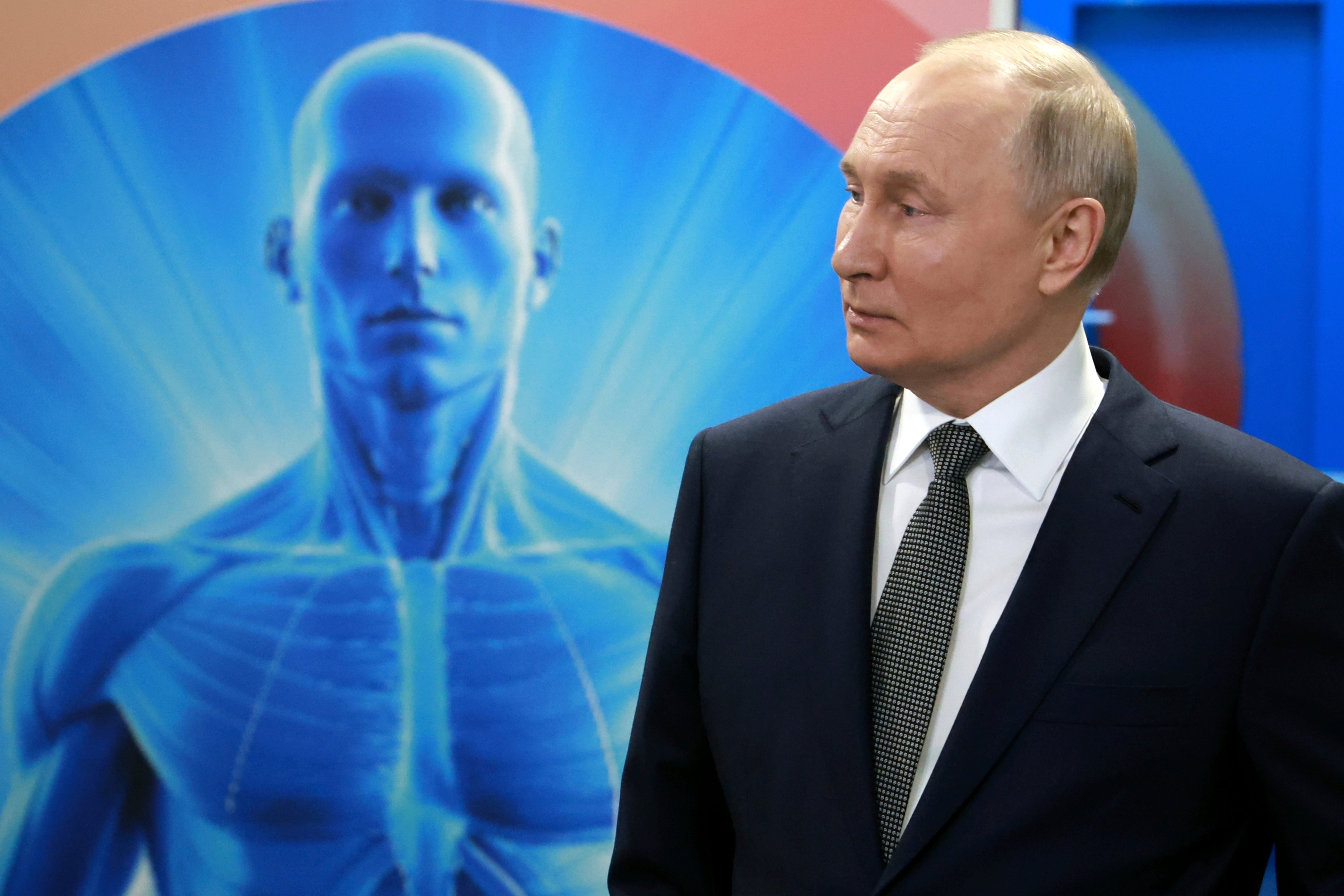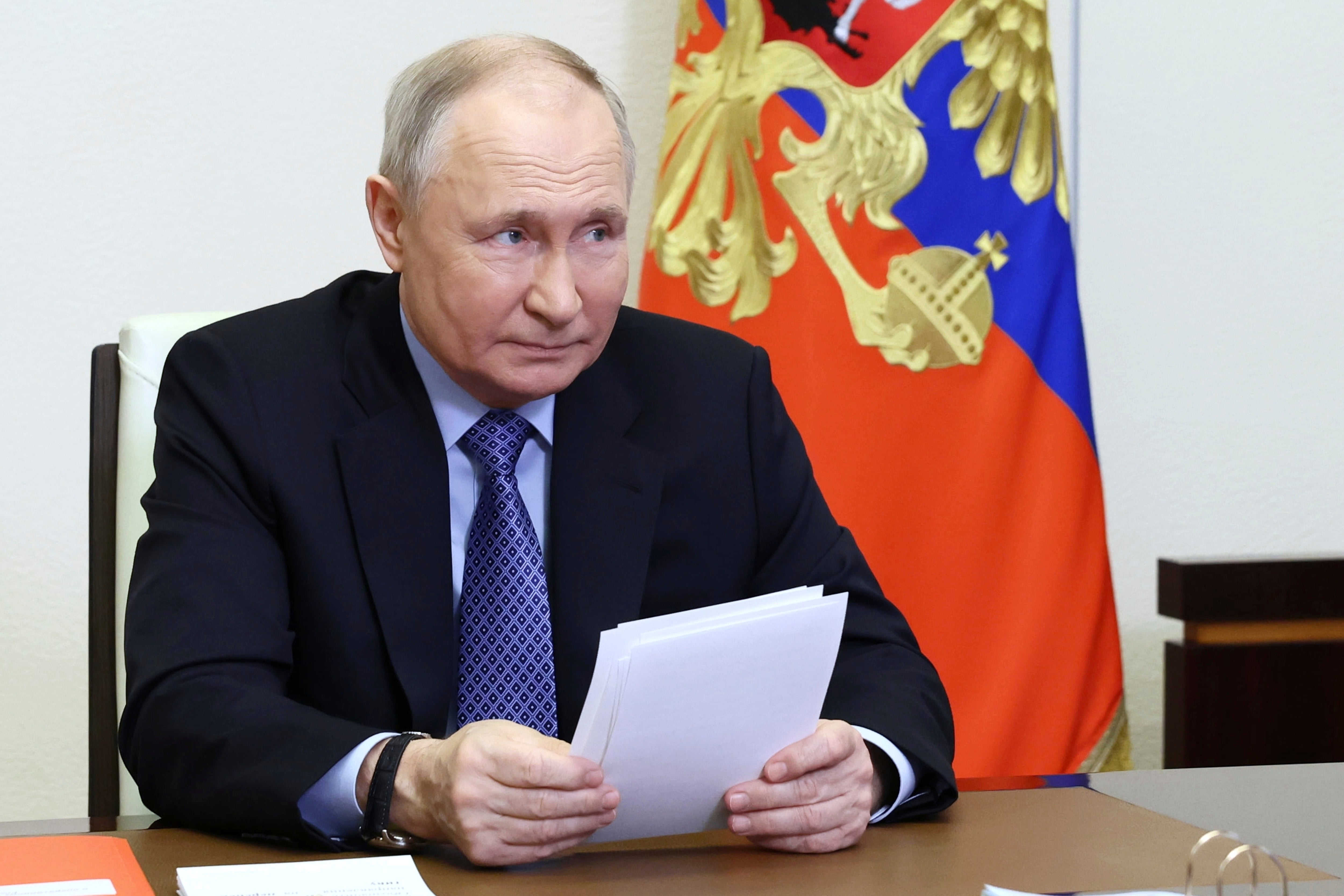Putin claims Russia is close to having cancer vaccines during latest bizarre TV appearance
Putin did not specify which types of cancer the proposed vaccines would target, nor how
Your support helps us to tell the story
From reproductive rights to climate change to Big Tech, The Independent is on the ground when the story is developing. Whether it's investigating the financials of Elon Musk's pro-Trump PAC or producing our latest documentary, 'The A Word', which shines a light on the American women fighting for reproductive rights, we know how important it is to parse out the facts from the messaging.
At such a critical moment in US history, we need reporters on the ground. Your donation allows us to keep sending journalists to speak to both sides of the story.
The Independent is trusted by Americans across the entire political spectrum. And unlike many other quality news outlets, we choose not to lock Americans out of our reporting and analysis with paywalls. We believe quality journalism should be available to everyone, paid for by those who can afford it.
Your support makes all the difference.President Vladimir Putin has said that Russian scientists were close to creating vaccines for cancer that could soon be available to patients, in his latest rambling televised press conference.
Putin said that “we have come very close to the creation of so-called cancer vaccines and immunomodulatory drugs of a new generation”.
“I hope that soon they will be effectively used as methods of individual therapy,” he added, speaking at a Moscow forum on future technologies.

Putin did not specify which types of cancer the proposed vaccines would target, nor how.
During the coronavirus pandemic, Russia developed its own Sputnik V vaccine against COVID-19 and sold it to a number of countries, although domestically it ran up against widespread public reluctance to get vaccinated.
Putin himself said he had taken Sputnik.
A number of countries and companies are working on cancer vaccines. Last year the UK government signed an agreement with Germany-based BioNTech to launch clinical trials providing “personalised cancer treatments”, aiming to reach 10,000 patients by 2030.
Pharmaceutical companies Moderna and Merck & Co are developing an experimental cancer vaccine that a mid-stage study showed cut the chance of recurrence or death from melanoma - the most deadly skin cancer - by half after three years of treatment.

There are currently six licensed vaccines against human papillomaviruses (HPV) that cause many cancers, including cervical cancer, according to the World Health Organization, as well as vaccines against hepatitis B (HBV), which can lead to liver cancer.
Meanwhile, on Wednesday the Kremlin was asked about a possible prisoner exchange with the United States, restating its position that such cases can only be resolved “in silence”, meaning that it will not comment on the state of negotiations.
The United States is seeking the release of former Marine Paul Whelan and reporter Evan Gershkovich, both held in Russian prisons on spy charges they deny. US Secretary of State Antony Blinken said on Tuesday that he had spoken to Whelan in a rare phone call.
Asked if an exchange was being prepared, Kremlin spokesman Dmitry Peskov said: “I want to recall the words of President (Vladimir) Putin in his recent interview that these matters love silence, and they can only be resolved in silence.
“Therefore, in our interests, in the interests of the American side, in the interests of those involved, it is better that this is all decided in silence.”
Putin suggested in an interview with Tucker Carlson last week that in return for Gershkovich, Moscow wanted Germany to free Vadim Krasikov, who was convicted of the 2019 murder of a Chechen dissident in Berlin.

Join our commenting forum
Join thought-provoking conversations, follow other Independent readers and see their replies
Comments